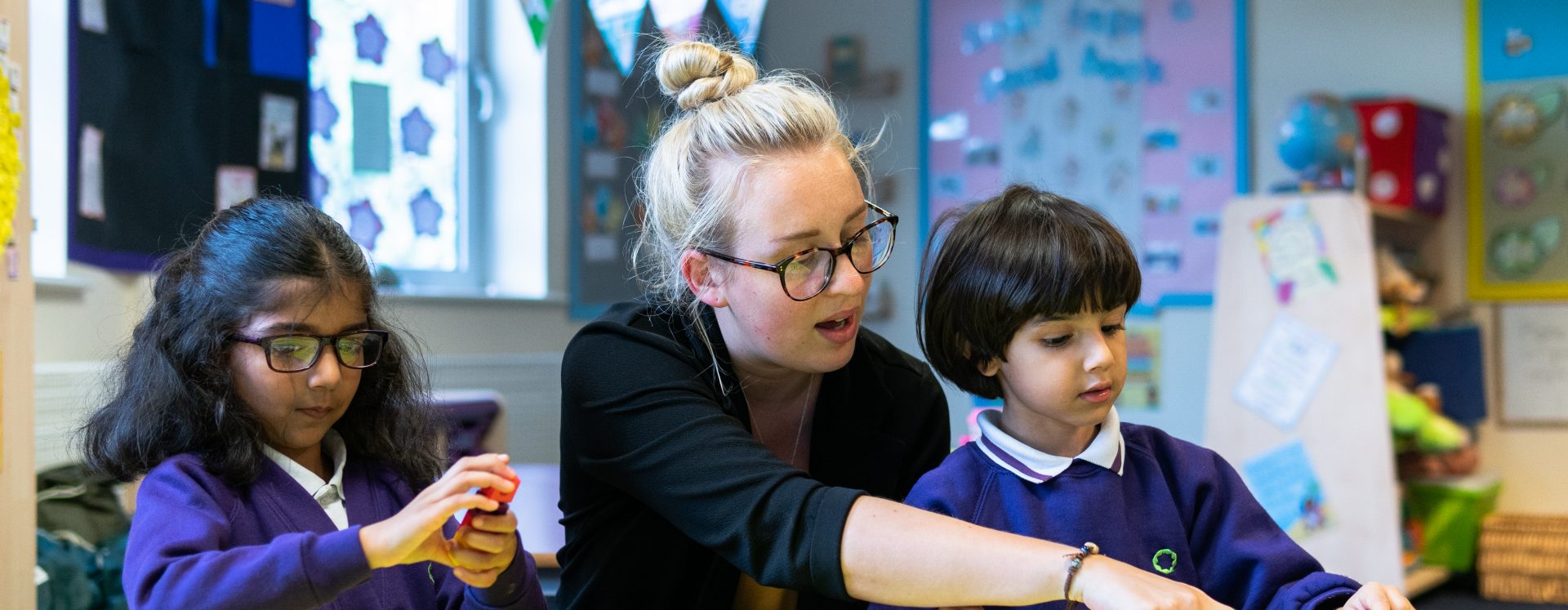Computing
At The Olive School, Bolton, our pupils will have a deep understanding of computer science and develop the information technology skills to be effective communicators. In doing so, they will be fully prepared for their next stage of education and equipped with these skills and knowledge for the rest of their lives. Computing is an increasingly significant part of both professional and personal daily life, and we believe that our pupils should be at the forefront of new technology, with a thirst for digital learning. We believe that technology can provide enhanced collaborative learning opportunities; better engagement of pupils; easier access to rich content; support conceptual understanding of new concepts and can support the needs of all our pupils.
Our vision in Computing is to develop our children to embrace technology & digitally navigate through a myriad of software and hardware. We want pupils to think ‘computationally’. Technology will be (one of) the main future skills/jobs as we move further into a culture of coding, digital communication, and problem-solving skills throughout a globalized, interconnected world. We want all pupils to understand the inner workings of networks and understand the challenges of the 21st century world and how we can lead a healthy life, intertwined within a digital lifestyle.
As a school, we have chosen the Purple Mash Computing Scheme of Work from Reception to Year 6. The scheme of work supports our teachers in delivering fun and engaging lessons which help to raise standards and allow all pupils to achieve to their full potential. We are confident that the scheme of work more than adequately meets the national vision for Computing. It provides immense flexibility, strong cross-curricular links and integrates perfectly with the 2Simple Computing Assessment Tool. Furthermore, it gives excellent supporting material for less confident teachers. It’s a wonderful tool that makes learning an enjoyable and interactive journey for your child, preparing them for success in an increasingly digital world.
Key Stage 1
In Key Stage 1 computing, students begin to grasp the core concepts of the digital world. They learn what algorithms are, how they become programs on digital devices, and that these programs execute by following step-by-step instructions. Additionally, they start writing and testing simple programs, enhancing their understanding of how computers function. This stage also introduces the organization, storage, manipulation, and retrieval of data in various digital formats, building a foundation for future data management. Importantly, students learn to communicate safely and respectfully online, protecting their personal information while recognizing the broader applications of information technology in their lives beyond the school environment. These fundamental skills and knowledge provide students with a solid basis for their digital journey as they progress through their education.
Key Stage 2
Key Stage 2 computing marks a significant progression from Key Stage 1, building upon the foundational skills acquired. In this stage, students further develop their computational thinking and problem-solving abilities by designing and writing programs to achieve specific goals. They learn to control and simulate physical systems, demonstrating the practical applications of their programming knowledge. Problem-solving is encouraged by breaking down complex issues into smaller, manageable parts. Key Stage 2 extends students’ understanding of the digital world, emphasising responsible and effective internet use. They explore how search engines find and store data and learn to use them effectively. Students are encouraged to be discerning in evaluating digital content, emphasising respect for individuals and intellectual property while promoting responsible, secure, and safe technology use. Children are equipped with a deeper understanding of computing and digital literacy, empowering them to tackle more complex challenges and tasks in our increasingly digital world.
We ensure that this learning is undertaken in unison with a systematic development of all aspects of online safety because we want to ensure that our children are fully equipped to negotiate the ever-changing digital world, both safely and responsibly. Here, we focus on themes such as privacy, online bullying, and healthy relationships, developing and revisiting important aspects of online safety throughout the years, as per the computing progression map below. Our knowledge-rich computing curriculum is taught according to the whole school long term plan for computing as per below.
Knowledge and Inclusion
The three main substantive knowledge components in the National Curriculum for Computing are computer science, information technology and digital literacy. We have broken this down into two main parts: declarative knowledge and procedural knowledge. These are carefully mapped out in our computing progression map, accessible below.
Our children are given motivating and inspiring cross-curricular opportunities and special experiences to embed essential learning. This enrichment is an essential element of our computing curriculum offer.
At The Olive School Bolton, we aim to enable all children to achieve to their full potential. This includes children of all abilities, social and cultural backgrounds, those with SEND and EAL speakers. We place particular emphasis on the flexibility technology brings to allowing pupils to access learning opportunities, particularly pupils with SEN and disabilities. With this in mind, we will ensure additional access to technology is provided throughout the school day and in some cases beyond the school day. During lessons, prompts/visual aids and a wide range of scaffolding support materials will be provided to ensure pupils with learning differences are still able to access the curriculum, using the STAR: All Stars Success model.
Resources
To view our Progression Map, click here
To view our Computing Pathway Roadmap, click here

